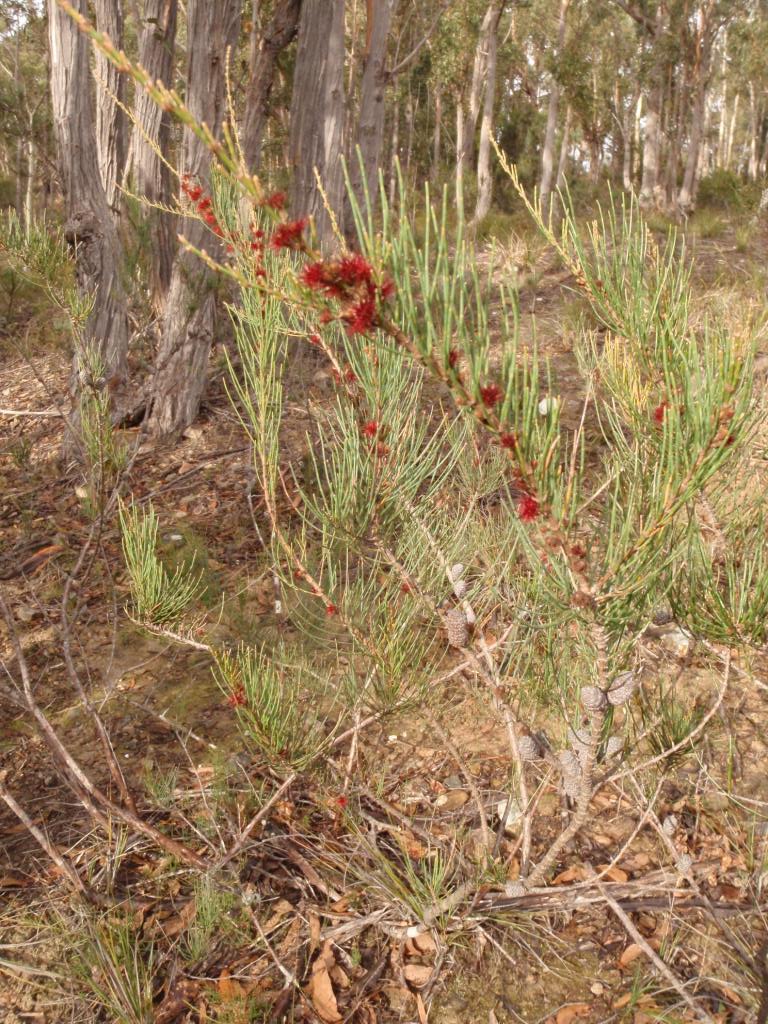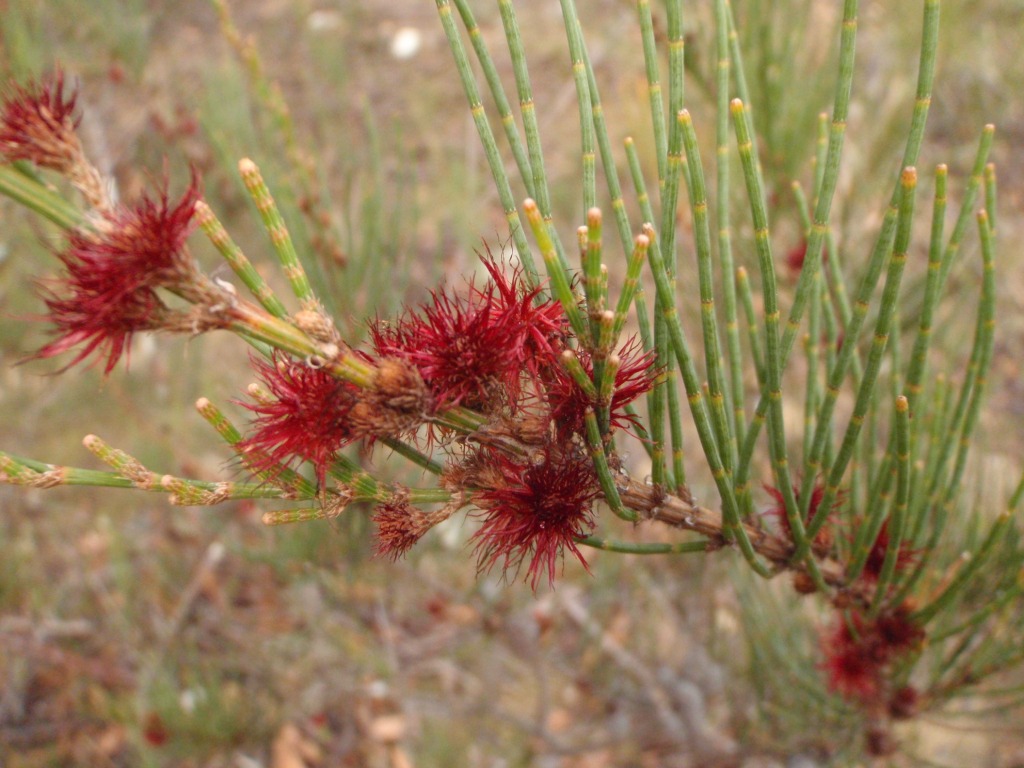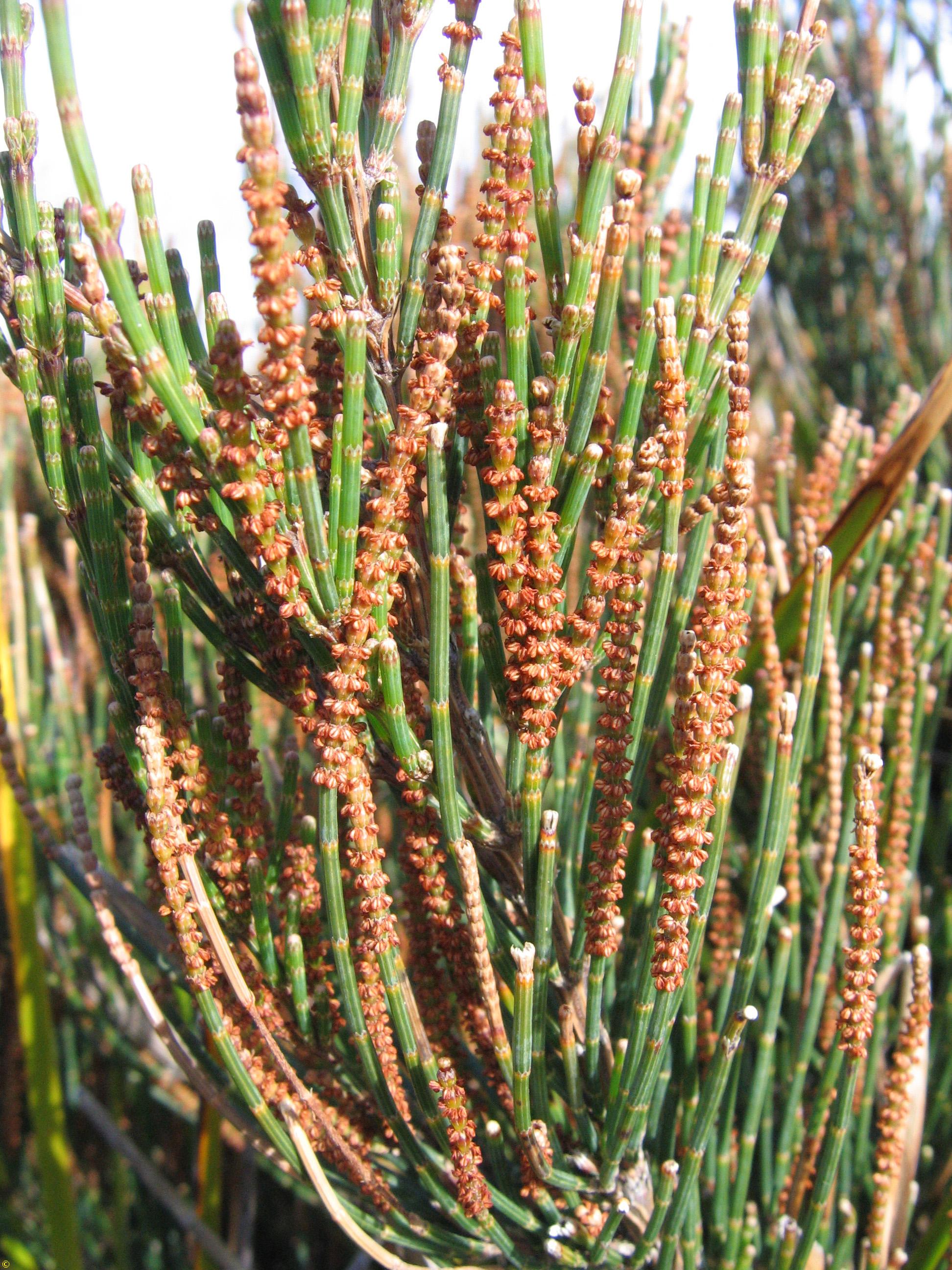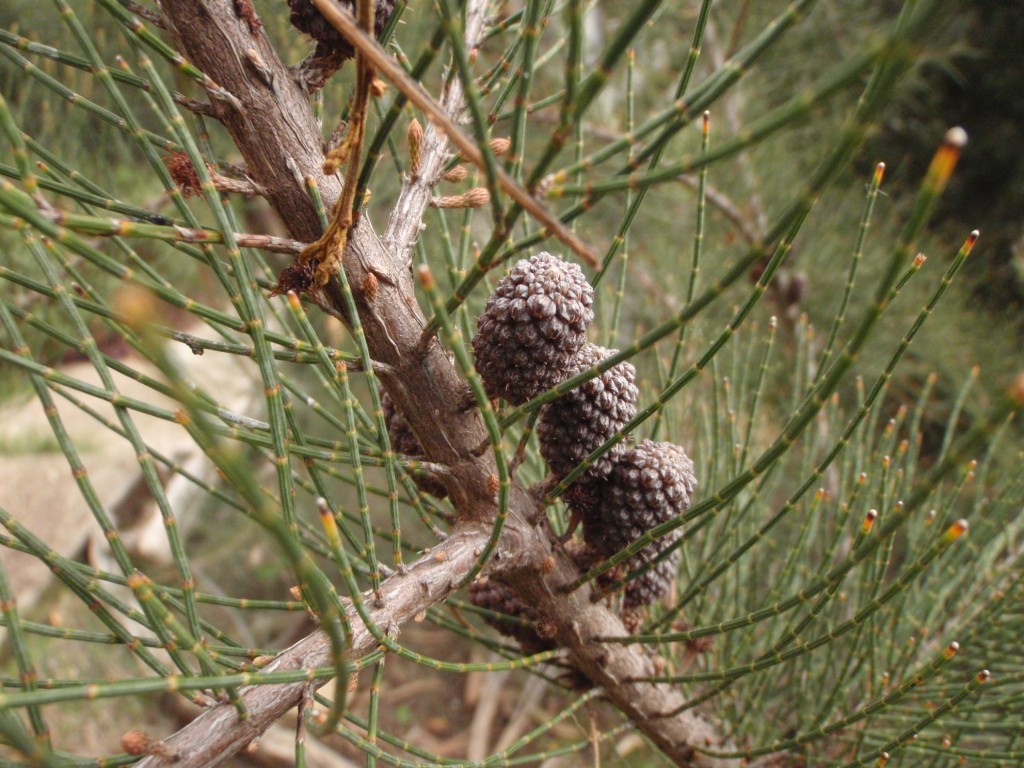Scientific Name: Allocasuarina monilifera Endemic Having a natural distribution confined to a particular geographic region
Common Name: necklace sheoak
Family Classification (Clade): Eudicots
Family: Casuarinaceae
Form Description: Erect shrub
Height (m): 0.5 – 4
Flowers: Male flowers in spikes at ends of branches.
Fruit: Woody cone enclosing winged nut.
Municipality
Plant Communities
Habitat Notes
Widespread and abundant from coastal heaths to sub-alpine scrub. Often only 50cm high in coastal heaths but small tree on the Central Plateau.
Site Tolerance
Dry, Exposed, Moist, Windy
Soil Tolerance
Loam, Nutrient-poor, Sandy
General Notes
Bird attracting. Susceptible to Phytophthora cinnamoni. Susceptible to browsing by hares and rabbits.
Propagation Calendar
-
Flowering Month
Jan Feb Mar Apr May Jun Jul Aug Sep Oct Nov Dec -
Seed Collecting Month
Jan Feb Mar Apr May Jun Jul Aug Sep Oct Nov Dec -
Sowing Month
Jan Feb Mar Apr May Jun Jul Aug Sep Oct Nov Dec -
Cutting Month
Jan Feb Mar Apr May Jun Jul Aug Sep Oct Nov Dec
Propagation Method
Seed Information
Seed Collection
Cones red with long styles when young, grey and oblong when mature.
Seed Treatment Method
Standard Scatter seed thinly on to damp potting mix. Hold seed in place by covering with more potting mix to approximately the depth of the seed size.
Seed Storage Life
5-10 years
Seed Treatment Notes
Treat with fungicide or insecticide if storing.
Germination Time
10-45 days
Cutting & Division Information
It is possible that this species can be grown from cuttings of semi-hard wood. Coppice shoots taken from cut stumps or damaged plants may strike readily. Allocasuarinas have a symbiotic relationship with nitrogen-fixing root actinomycetes (Frankia sp). Inoculating potting soil with divots taken from beneath mature plants may be beneficial.



